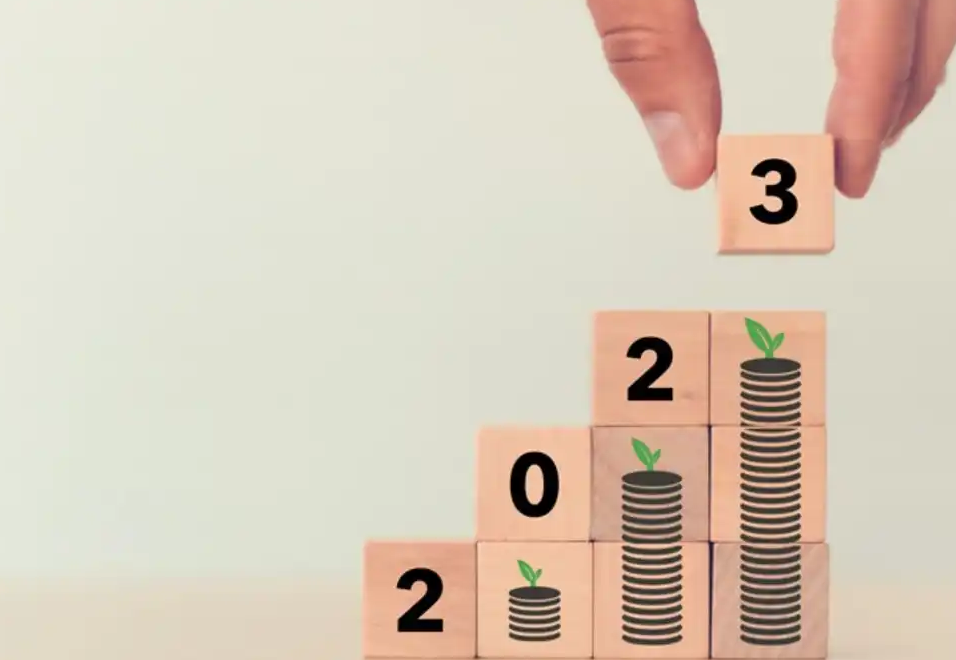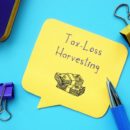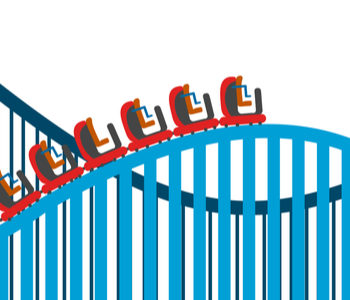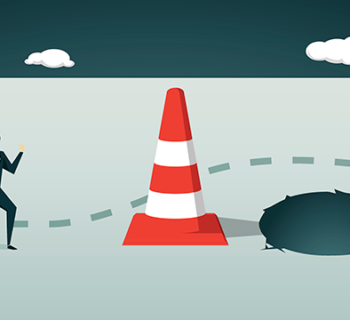2022 has been a financially challenging year for many Americans. From peaking inflation and the challenges of higher living expenses to increasing interest rates and elevated levels of market volatility, some Americans are less optimistic about their finances in the New Year. In fact, according to a recent survey from www.Bankrate.com, 2/3 of Americans do not expect their finances to improve in 2023 and 11 percent expect them to be significantly worse. While the New Year may bring challenges, it also brings opportunities to take a proactive approach toward pursuing your goals in the face of uncertainty. They say opportunity comes to the well prepared and developing a game plan for your finances may be a great way to help you thrive during these uncertain times.
 Set transformative goals and hold yourself accountable
Set transformative goals and hold yourself accountable
Too often, financial resolutions are established that are general in nature. For instance, two popular financial resolutions are “paying down debt” and “saving more, spending less”. While those are both good places to start, it is important to be more specific when creating your financial goals for the New Year. Consider focusing on transformative goals that are specific, measurable, achievable and congruent with your life. Rather than simply planning to “save more, spend less”, consider a goal of that is more specific such as increasing your 401(k) savings rate by 5 percent or cutting your living expenses by $200 per month. Focus on where you want your financial life to be and then establish detailed goals that will get you there. Keep in mind, creating goals without the discipline to make the sacrifices necessary for their achievement often prevents people from reaching their full potential. Consider working together with your spouse or partner to hold each other accountable. If you find that you lack the self-discipline to stay on track, consider working with a financial advisor/coach who can help.
Prepare for the Possibility of an Economic slowdown
Many economists are predicting some level of recession in 2023. While we may get lucky and achieve the soft landing the Federal Reserve is hoping for, it is important for Americans to prepare for possibility of an economic slowdown. One place to start is with reserves. Whether you are examining your personal finances or run your own business, no one ever complained about having too much in cash reserves during a recession. From the loss of job or a business slowdown to unforeseen expenses or the opportunity to invest during the downturn, building a cash reserve may be an effective way to protect your finances and your wellbeing.
When it comes to credit - no one wants to give you money when you need it and everyone throws money at you when you don’t. Securing home equity lines of credit, business lines of credit and consolidating debt can all be important items to review before a potential slowdown. Consider giving yourself additional safety nets as they may help protect you against the impact of unforeseen financial difficulties.
Finally, review your expenses. Rather than struggle to determine how you will handle a recession, job loss or business downturn, consider creating a budget that strips out unnecessary discretionary spending, curbs savings and ultimately reduces the financial short falls until things can stabilize. Keep this playbook in your back pocket for when serious financial issues arise in the future. Too often, people are slow to adjust their budgets when their personal economy is going through a slowdown.
 Revisit your cash reserve investment strategy
Revisit your cash reserve investment strategy
Now may be a great time to consider revisiting how you are investing your rainy-day fund. After years of holding short term interest rates at or near zero, the Federal Reserve raised interest rates seven times in 2022 and there may be more in store for 2023. Despite the increases in interest rates, S&P Global notes that the average American is still earning a paltry .09 percent APY on their savings.
While most people agree that cash reserves are important, there are differing opinions on how much is necessary. More often than not, financial experts might suggest three to six months’ worth of liquid cash reserves. Others may suggest using a home equity line of credit for larger emergencies. While there are many different approaches, everyone’s circumstances are unique and the size of the optimal reserve needed will vary. Generally, the more uncertainty in your financial life, the more risk you have and the larger the reserve you may want to consider. Keep in mind, when it comes to investing cash, boring is good. After all, cash reserves are not supposed to be exciting. Instead, a true cash reserve is generally going to be liquid, contain no risk and maintain FDIC insurance coverage but that doesn’t mean you shouldn’t earn something. Consider visiting www.bankrate.com or www.nerdwallet.com for a list of higher yielding options. Additionally, you may want to consider CDs for a portion of longer-term reserves too.
Review your bond investments
The combination of high levels of inflation and federal reserve rate hikes helped shape 2022 into the worst year in history for the bond market. Since bond values generally have an inverse relationship to interest rates, when interest rates rise, bond prices tend to fall. However, as bond prices fall, the yield on bonds increase which means that comparable bonds may be yielding much higher rates today than they were 1 year ago. While no one can predict where interest rates go from here and whether 2023 will be a better year for the bond market, (after all, it could get worse before it gets better), it is important to review your bond portfolio and evaluate whether there are any opportunities that you might be able to take advantage of. While some bond managers recommend reducing the duration of your bond portfolio when you think rates are going to rise, they also may consider maintaining or increasing duration when you think rates may be plateauing. Consider reviewing your bond portfolio on www.Morningstar.com or working with a financial professional to determine the duration of your current holdings.
 Take Advantage of the Impact of Inflation on Retirement Contributions
Take Advantage of the Impact of Inflation on Retirement Contributions
Since many of the limits set by the IRS are indexed for inflation, high levels of inflation mean updated higher retirement plan contribution limits for the New Year. This creates a tremendous opportunity to supercharge your savings if you have available cash flow. For 2023, 401(k) participants can now contribute up to $22,500 and savers over age 50 can contribute an additional $7,500 for a total of $30,000. For small business owners, the total contribution limits for retirement plans including profit sharing has increased to $66,000 from $61,000 a year ago. (The same over age 50 catch-up provision of $7,500 applies to business owners so total contributions can reach $73,500.) Simple contribution limits increase to $15,500 plus an over age 50 catch-up of $3,500. Additionally, for high-income earning business owners, contribution limits to a Cash Balance Plan have jumped to as much as $398,000 in 2023. Increased contributions may help you to reduce taxes or now or in the future so be sure to speak to your tax adviser.
While financial game-plans may be difficult to stick to, maintaining a disciplined approach throughout the year may help as you pursue the goals most important to you. Consider addressing the Smart Money Moves noted above and consider speaking to your tax, legal and financial adviser to determine the most appropriate approach for your unique circumstances.
Kurt J. Rossi, MBA, CFP®, AIF® is a CERTIFIED FINANCIAL PLANNER & Wealth Advisor. He can be reached for questions at 732-280-7550, kurt.rossi@Independentwm.com, www.bringyourfinancestolife.com & www.Independentwm.com. LPL Financial Member FINRA/SIPC.










